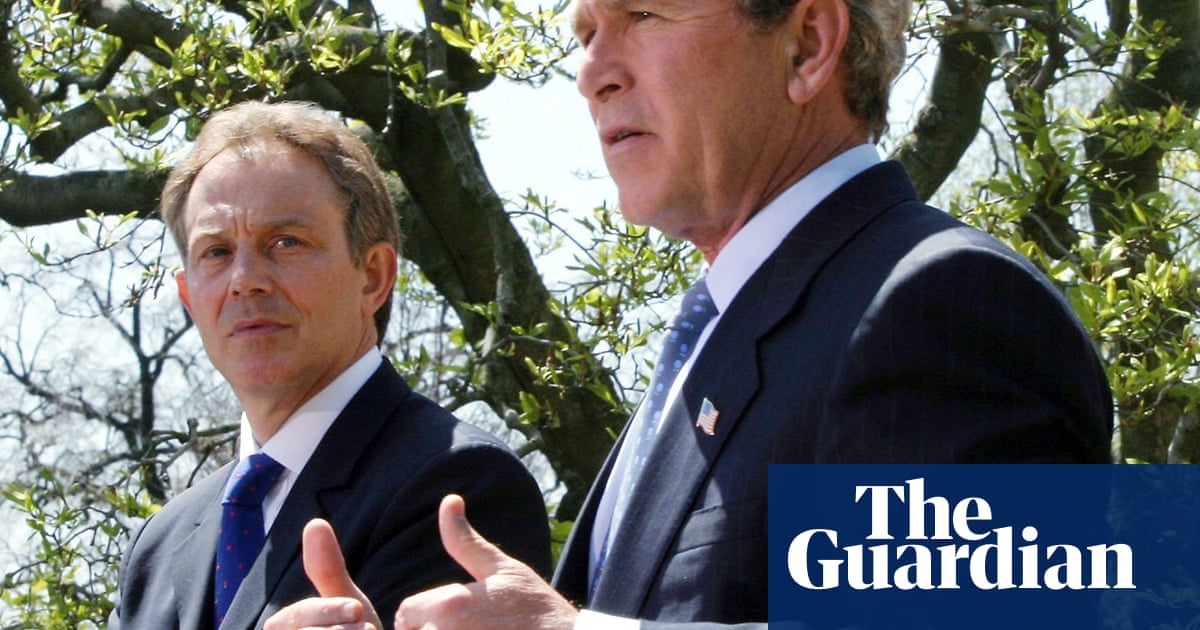Tony Blair’s consultants independently doubted if the United States had “proper political control” of military procedures in Iraq after an aged United States authorities trusted that George W Bush thought he bought on a “mission from God” versus Iraqi insurgents, freshly launched information disclose.
Blair required to “deliver some difficult messages” to the after that United States head of state for a “more measured approach” in April 2004, adhering to a United States military process to subdue a major rebellion within the metropolis of Falluja, based on paperwork launched to the National Archives in Kew, west London.
In a remarkably sincere dialogue, taped in a document important “please protect very carefully”, Richard “Rich” Armitage, after that United States alternative assistant of state, knowledgeable Sir David Manning, after that UK ambassador, that Bush required a “dose of reality” after requiring United States pressures “kick ass” in Falluja, the place United States troopers had been participated in a bloody struggle with Iraqi militants after 4 private military specialists had been assailed and eradicated.
Armitage attracted Blair to make the most of his influence in an sincere take a look at to Washington on 16 April to immediate Bush to deal with Falluja “as part of a carefully judged political process”.
The United States had truly launched Operation Vigilant Resolve in Falluja after the mutilated our bodies of the United States specialists had been hung from a bridge over the Euphrates River a lot lower than one yr after the May 2003 topple of the Iraqi tyrant Saddam Hussein.
Bush had truly initially been affected by his military generals and “wanted to kick ass” with United States marines inhabiting town. But political leaders on the union provisionary authority, established after Saddam’s loss, was afraid the United States military motion may hurt hopes of growing an impartial Iraqi administration.
Bush withdrawed after being “faced with this ‘dose of reality’”, Manning reported again to No 10.
“Rich summed it all up by saying Bush still thought he was on some sort of mission from God. But that recent events had made him ‘rather more sober’.”
Bush had truly notoriously acknowledged “mission accomplished” after the topple of Hussein by United States and UK union pressures. But the White House has truly previously rejected as “absurd” stories that Bush independently knowledgeable a Palestinian delegation in 2003 that God talked to him and acknowledged: “George, go fight these terrorists in Afghanistan” and “George, go and end the tyranny in Iraq.”
Armitage rejected insurance coverage claims by the whole United States chief in Iraq, Gen John Abizaid, that he may take down the Falluja rebellion inside days as “bullshit” and“politically crass” Armitage thought the United States was “gradually losing on the battlefield” which it was “inevitable” the administration would definitely must ship out much more troopers, which would definitely be “politically ugly” for Bush, Manning reported.
No 10 fidgeted relating to the United States military motion. A rundown paper, upfront of Blair’s Washington go to in April 2004, acknowledged events in Falluja had “used up a great deal of the coalition’s political capital”.
“Publicly we will want to underline our continued commitment to seeing the task through, but privately we will need to deliver some difficult messages to Bush about the need for a more measured approach by the US military, under proper political oversight, and the need for a clear end to the occupation on July 1,” it acknowledged.
It included: “The prime minister might question Bush on whether there is proper political control of military operations,” and wrapped up: “In short, too many military officers talking tough to a US audience, with little attention to the effect on an Iraqi or regional audience.”
Blair’s diplomacy advisor, Sir Nigel Sheinwald, outlined the UK’s main worries in a memorandum to the top of state as “clumsy US handling”, “disproportionate US military tactics – what they did in Falluja looked on Iraqi TV screens to be a form of collective punishment” and “apocalyptic media treatment”.
The United States shed 27 troopers, whereas round 200 insurgents and 600 Iraqi non-public residents had been believed to have truly been eradicated in Falluja throughout that point. Coalition pressures took town in a 2nd offending launched in November 2004. United States troopers continued to be in Iraq up till 2011.

